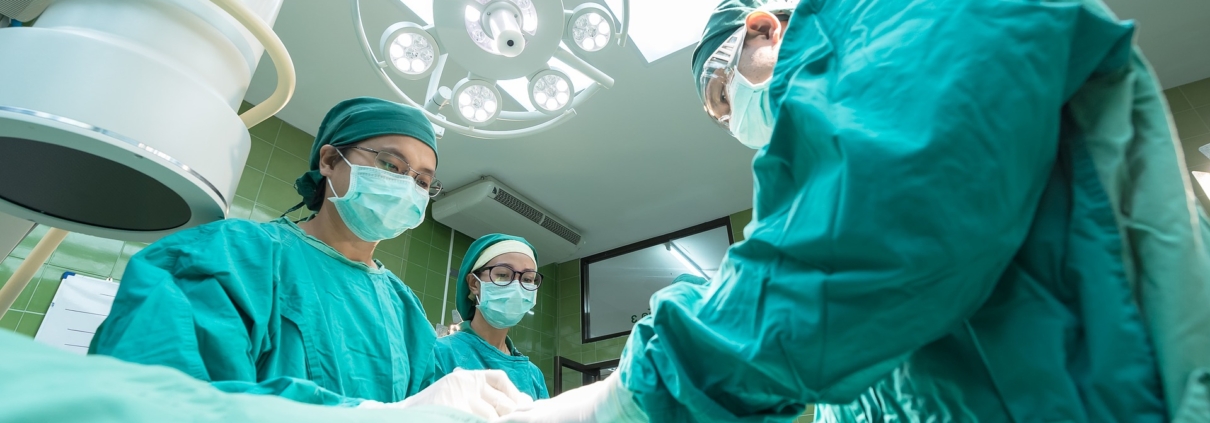Supporting Sterile Services Departments with quality instruments
The role of Sterile Service Departments (SSDs) is critical to the smooth running of operating theatres across the UK.
The timely decontamination and turnaround of full sets of instruments that are safe to use and perform to their optimum ability is critical to the smooth running of surgical lists.
But unfortunately, too many SSDs and instrument managers are being hampered by underinvestment in quality instruments, leading to a number of significant issues.
Damaged or missing instruments can cause a range of problems, not just for the sterile services department, but also for surgeons and patients:
- Surgical procedures can be delayed or cancelled.
- Hospital stays may be extended, aggravating bed-blocking situations.
- Interoperative instrument breakage can put patients at risk.
- Inability to effectively decontaminate instruments risks surgical site infections.
A sizeable problem for Sterile Service Departments
An audit carried out by the ABHI on 2020(1) showed that out of 32,000 instruments checked at 48 hospitals, less than 20% were in a good enough condition to be used.
In fact, 31% of the instruments needed to be replaced, 32% needed to be repaired, and 18% had issues with surface finish, including corrosion.
Another report, by Efthymiou and AR Cale(2) in 2022 revealed that surgical equipment failed in 92% of cardiac cases, 80% of which were surgical instruments. The report concluded that there may be as many as 1500 incidents a year of patient harm caused poor quality instruments.
Cheap reusable surgical instruments
There are many makes of resusable surgical instruments that are made from high quality stainless steel, are designed for optimum cleaning and come with warranties lasting decades. However, there is no doubt that the cost of investing in these upfront can be significant.
Budgetary pressures can mean that SSDs and instrument managers are forced to order much cheaper instruments. Unfortunately, these often come with only a one- or two-year warranty They are also made with lower quality stainless steel and have a more rudimentary design. This in turn means that decontamination is more difficult and damage more likely.
High quality instruments in contrast are often designed to optimise performance, decontamination and maintenance, even to the extent that their parts can be taken apart during servicing, allowing them to be restored to their original levels of functionality.
Carbon Footprint Considerations
Investing in good quality instruments also makes sense for the NHS’s plans to attain Net Zero. The NHS Carbon Footprint Plus considers an expanded scope of emissions, covering the products procured from its 80,000 suppliers. Sourcing cheap disposable or reusable instruments from thousands of miles away is not a sustainable approach for the long term.
Short-lived instruments also lead to more waste, not only in terms of instrument disposal, but also as a result of the increased number of manufacturing processes involved in making them.
Of course, having safe and complete instrument sets can be enhanced through consistent auditing, maintenance and training, but sterile services managers and instrument managers can only do so much with the instruments that they are given.
As the ABHI 2020 audit concluded, “Investment in the replacement of aged surgical instrument inventory should be considered as a priority for NHS spending” and “The procurement of surgical instruments should be based on overall quality and value, with the demonstration of strong ethical and resilient supply chains recognised and rewarded in purchasing decisions.”
In this way, we can support our Sterile Service Departments to help ensure that instrument performance and availability is always optimised.
References:
- https://www.abhi.org.uk/media/2680/abhi-the-role-of-surgical-instruments.pdf
- Efthymiou CA, Cale AR. Implications of equipment failure during surgery. Ann R Coll Surg Engl. 2022 Nov; 104(9):678-684.doi 10.1308/rcsann.2021.0345. Epub 2022 Apr 21. PMID: 35446701 PMCID: PMC9685966.





